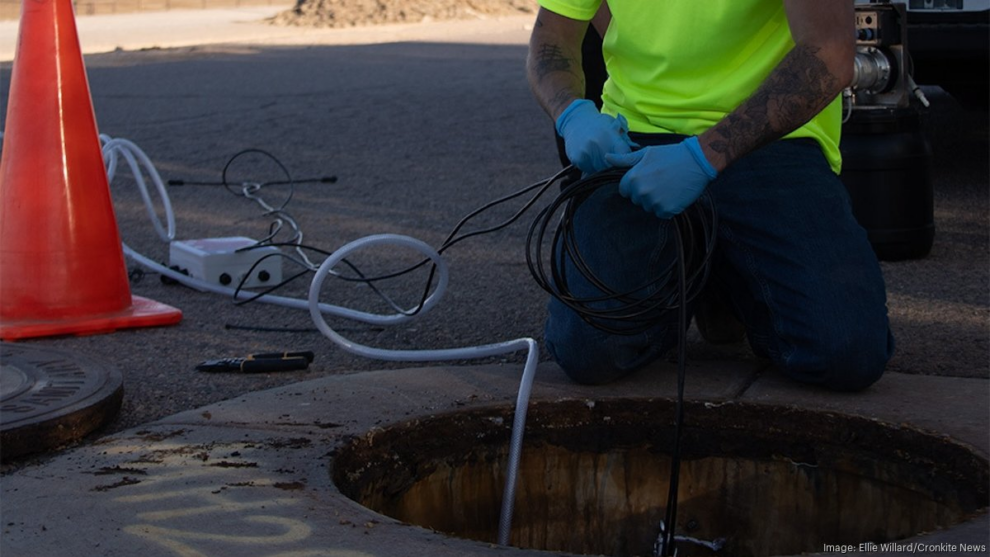Artificial intelligence is helping Phoenix from underground. The city Water Services Department has launched a six-month wastewater treatment pilot program with AI company Kando, based in Israel.
Kando Pulse is a wastewater intelligence platform built to “improve people’s lives and the environment,” according to Guy Cohen, chief product officer at Kando. The system uses sensors to obtain data from wastewater and translate it into insights that detect any irregularities within sewage.
Those irregularities can range from pH issues to high temperatures, caused mainly by illegal dumping at industrial sites. Pollutants such as fuels, solvents and oils can damage wastewater plants and pipes, forcing the city to expend more time, energy and money cleaning and treating the sewer system.
Nazario Prieto, assistant water services director for Phoenix, referred to the system as “adding eyes through our sewer mains 24/7.” The sensors can almost immediately alert city officials when issues arise, allowing a quicker response time to find the culprits of illegal dumping.
“It gives us the opportunity to respond … right now versus three days later, or five days,” said Christine Nunez, environmental programs coordinator for Phoenix.
It also gives Nunez and her team at the 23rd Avenue Wastewater Treatment Plant more time to divert the waste, so only one plant may be affected. Although Arizona has struggled with long-term drought, Phoenix has been proactive in building infrastructure and systems to secure its goal of a reliable and clean 100-year water supply by 2050.
The city has taken action through groundwater recharging and wastewater recycling to meet this objective. After undergoing treatment and testing, 97% of Phoenix’s wastewater is recycled and used for irrigation, cooling for the Palo Verde Generating Station, replenishing water resources underground, contributing to the Tres Rio Wetlands.
“There is no new water, right? We are all using the same water over and over and over,” Prieto said. “What we’re seeing now is that we have the technology and the capability to be able to speed up that process that the Earth normally does.”
The Kando Pulse devices work as a tool to make sure “wastewater is as clean as it can possibly be” before it enters the wastewater treatment plants, according to Prieto. He added that the Water Services Department believes the Arizona Department of Environmental Quality may soon require sewer monitoring, and these devices will help them meet those conditions.
With 16 devices installed in sewer drains across Phoenix, the city is the fourth in the U.S. to utilize Kando Pulse technology. Jeff Schultz, an employee from RDH Environmental Services, a company that has assisted the city with the Kando Pulse device installations, believes that within the next six months to a year, the number of devices installed in the city will double.
Prieto and Nunez said the city is prioritizing innovative ways to contribute to water conservation and looks forward to new possibilities with advancing technology and artificial intelligence.
“That is what we will need to ensure that our wastewater is as clean as it can be and provide a much better product and protect the environment,” Prieto said.
Source: Ahwatukee Foothills News










